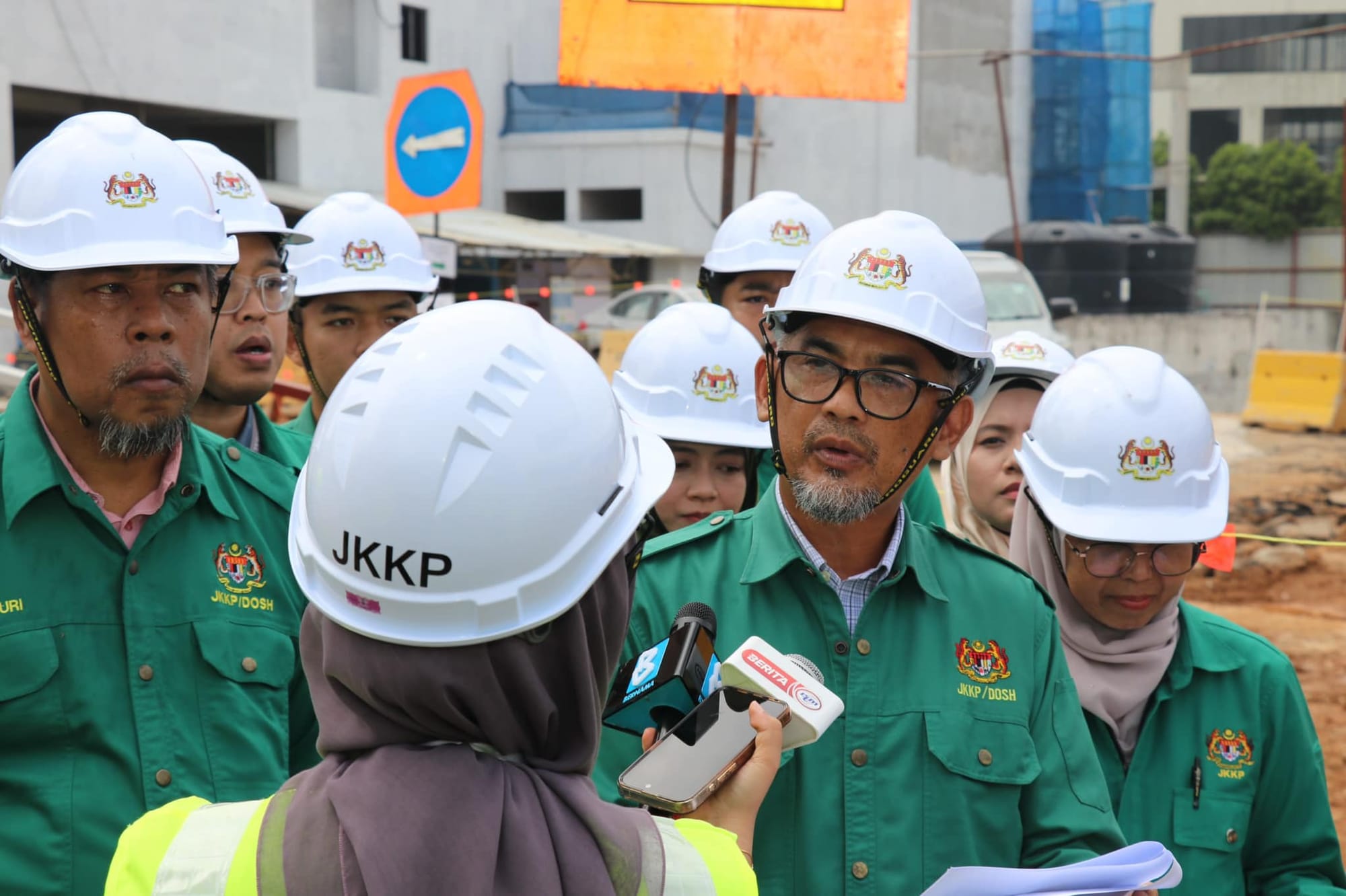Understanding DOSH: Your Guide to Workplace Safety Regulations in Malaysia

Image courtesy of JKKP/DOSH (Department of Occupational Safety and Health Malaysia)
Workplace safety is essential for protecting employees, ensuring productivity, and avoiding costly accidents. In Malaysia, the Department of Occupational Safety and Health (DOSH) plays a key role in regulating and enforcing safety standards across various industries. Whether you’re an employer or an employee, it’s important to understand DOSH’s role and the safety regulations it enforces to maintain a compliant and secure work environment.

What is DOSH?
The Department of Occupational Safety and Health (DOSH) is a government agency under Malaysia's Ministry of Human Resources. Its primary mission is to ensure that safety and health standards are upheld in all workplaces across the country. DOSH is responsible for developing regulations, conducting inspections, and promoting a culture of safety in Malaysian industries.
Key Objectives of DOSH
- Prevent Accidents and Occupational Diseases: DOSH implements regulations and guidelines to minimize workplace hazards and prevent accidents or occupational diseases from occurring.
- Ensure Safe Working Conditions: By enforcing compliance with safety laws, DOSH ensures that employers provide safe working environments for their employees, covering industries from manufacturing to construction and more.
- Promote a Safety-First Mindset: DOSH emphasizes the importance of creating a proactive safety culture in the workplace. This includes educating employers and employees on the significance of proper safety practices and encouraging continuous improvement.
Key Regulations Enforced by DOSH
DOSH regulates various aspects of workplace safety, including the following:
- Occupational Safety and Health Act 1994 (OSHA 1994): The cornerstone of Malaysia’s workplace safety laws, this act outlines the general duties of employers, employees, and the government to ensure a safe working environment.
- Factories and Machinery Act 1967: This act focuses on ensuring the safety of workers who operate machinery in factories. It sets rules for machine maintenance, workplace hygiene, and the control of dangerous chemicals.
- Use and Standards of Exposure to Chemicals Hazardous to Health Regulations (USECHH 2000): This regulation is designed to protect workers from exposure to harmful chemicals and ensure proper management of chemical hazards.
- Noise Exposure Regulations: These guidelines ensure that workers in noisy environments undergo audiometric testing and are provided with proper protective equipment to prevent hearing loss.
How Does DOSH Ensure Compliance?
DOSH ensures compliance with safety standards through regular workplace inspections and assessments. Here are some of the ways DOSH operates:
- Workplace Inspections: DOSH conducts regular inspections in various industries to assess whether companies are complying with occupational safety regulations. Inspections include reviewing work practices, safety equipment, and employee training.
- Accident Investigations: In the event of a workplace accident, DOSH investigates the incident to determine its cause, identify areas of non-compliance, and recommend corrective actions to prevent future occurrences.
- Safety Audits and Risk Assessments: DOSH requires companies to conduct risk assessments, such as the Chemical Health Risk Assessment (CHRA), and safety audits to identify potential hazards and develop preventive measures.
- Training and Education: DOSH actively promotes safety awareness by offering various training programs for both employers and employees, covering areas such as hazardous materials handling, machinery operation, and fire safety.
Why DOSH Compliance Matters
For businesses, complying with DOSH regulations is not just about avoiding penalties. It’s about protecting the well-being of employees, reducing the risk of workplace accidents, and maintaining a positive reputation in the industry. Non-compliance can lead to serious consequences, including hefty fines, legal action, or even closure of business operations. For employees, DOSH plays a crucial role in ensuring their rights to a safe and healthy work environment are upheld. With DOSH’s oversight, workers can feel confident that their safety is a priority and that they have the support needed to report unsafe practices without fear of retaliation.
How to Stay Compliant with DOSH Regulations
- Conduct Regular Safety Audits: Employers should perform regular safety audits to ensure their facilities meet the latest DOSH requirements and identify areas for improvement.
- Employee Training: Regular safety training is key to ensuring that employees are aware of their responsibilities and understand the safety measures in place.
- Proper Documentation: Keep detailed records of safety audits, risk assessments, accident reports, and employee training to demonstrate compliance in the event of a DOSH inspection.
- Stay Updated on Changes: DOSH frequently updates its guidelines and regulations, so it’s important for businesses to stay informed about any changes to remain compliant.
Conclusion
Understanding DOSH and its regulations is essential for ensuring workplace safety in Malaysia. By adhering to the standards set by DOSH, employers can protect their workers, avoid costly accidents, and build a culture of safety in the workplace. Whether you’re a business owner or an employee, staying informed and proactive about occupational safety is the key to long-term success and well-being.